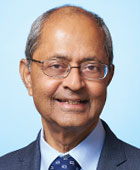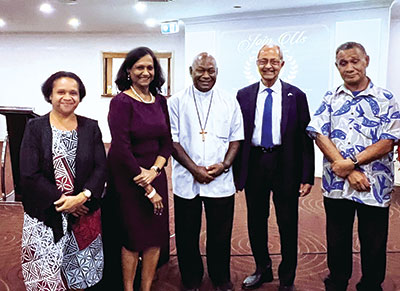Lifestyle and Global Psychiatry
Abstract

As I begin my APA presidency, I would like to thank you for giving me the opportunity to make an impact on mental health on a large scale. One of the areas on which I will focus during my presidency and beyond is improving the lifestyle of our members, our patients, and the community at large, to enhance their mental and physical functioning, prevent illnesses, and ameliorate existing illnesses. In my speech at APA’s 2024 Annual Meeting (see page 32), I mentioned some of the evidence supporting the therapeutic value of lifestyle psychiatry, and this is an opportune time to get that message out: There is increasing appreciation of and interest in lifestyle choices that can improve and sustain mental and physical health (see special report starting on page 19). A session on lifestyle psychiatry led by me and Drs. Gia Merlo, Steven Sugden, and Joseph Firth at the Annual Meeting was attended by more than 300 people and finished with a robust Q&A.
The growing interest in lifestyle psychiatry is occurring at the global level as well. The president of the World Psychiatric Association, Danuta Wasserman, M.D., Ph.D., has also chosen lifestyle as her presidential theme. To date, I have presented well-received lectures on lifestyle in the Philippines, India, Australia, and Papua New Guinea. Some countries and psychiatric associations have given a prominent place for lifestyle interventions in their evidence-based guidelines for the treatment of depression and other psychiatric disorders. But even in these countries, many clinicians do not pay sufficient attention to lifestyle in the treatment of their patients, nor for their own well-being. This shows that much more needs to be done to educate and motivate clinicians and the public.

After his lecture, APA President Ramaswamy Viswanathan posed for a photo with (from left) Taies Sansan, secretary of personnel management for Papua New Guinea; Dr. Kusum Viswanathan; Cardinal Sir John Ribat, a Papua New Guinean prelate of the Roman Catholic Church; Viswanathan; and Dr. Chamilu Possanau, the first psychiatrist in Papua New Guinea.
There is robust evidence from the global literature on the beneficial effects of physical exercise in the treatment of anxiety, depression, attention-deficit/hyperactivity disorder, and bipolar and psychotic disorders and reducing their incidence or severity. There is also considerable evidence for interventions targeting sleep, smoking, and nutrition. Positive social relationships and stress amelioration are also recognized as important.
While industrialization and technological improvements have been largely beneficial, they have resulted in unintended consequences affecting healthy nutrition, physical activity, sleep, and other lifestyle factors. They impact health in both developed and developing countries. My talk in Papua New Guinea was attended by Cardinal Sir John Ribat and other high-placed officials. They were appreciative that an APA president had visited them and shared a message on which they can act to keep their populations healthy.
Our APA is in many aspects a global organization. We should strengthen our partnerships not only with developed countries, but also with developing countries to promote education, research, and service.
In future columns, I will write more specifically about individual lifestyle elements and clinical evidence relating to them. ■



